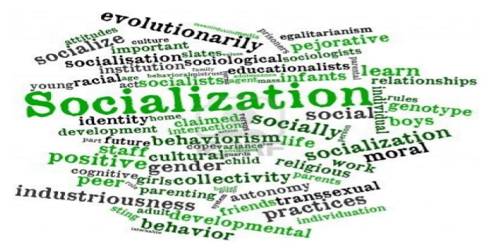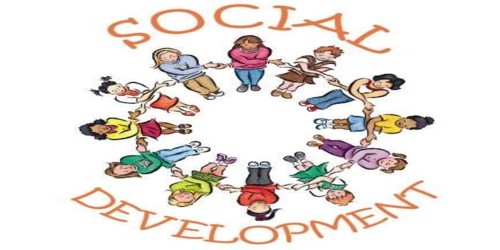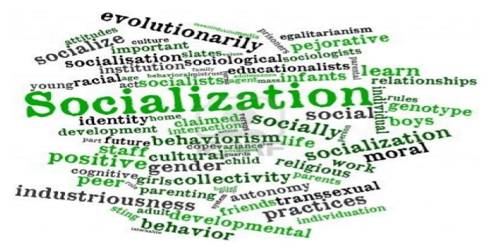Socialization is known as the process of inducting the individual into the social world. It is the means by which human infants begin to acquire the skills necessary to perform as functioning members of their society. The term socialization refers to the process of interaction through which the growing individual learns the habits, attitudes, values, and beliefs of the social group into which he has been born.
Broad and Narrow Socialization
Arnett proposed an interesting though seldom used distinction in types of socialization. Arnett distinguishes between broad and narrow socialization. Broad socialization is intended to promote independence, individualism, and self-expression; it is dubbed broad because this type of socialization has the potential of resulting in a broad range of outcomes. Narrow socialization is intended to promote obedience and conformity; it is dubbed narrow because there is a narrow range of outcomes. In cultures characterized by broad socialization, socialization is intended to promote independence, individualism, and self-expression. In contrast, cultures with narrow socialization hold obedience and conformity as their highest values.
Socialization is a lifelong process recurring as we enter new phases of life, such as adulthood or senior age. The theory of broad and narrow socialization are described, with a particular emphasis on placing family socialization in its cultural context. In cultures characterized by broad socialization, socialization is intended to promote independence, individualism, and self-expression. In the social sciences, institutions are the structures and mechanisms of social order and cooperation governing the behavior of individuals within a given human collectivity. In contrast, cultures with narrow socialization hold obedience and conformity as their highest values. Seven sources of socialization are described, including family, peers, school/work, community, the media, the legal system, and the cultural belief system. Institutions are identified with a social purpose and permanence, transcending individual human lives and intentions, and with the making and enforcing of rules governing cooperative human behavior.
Information Source:















